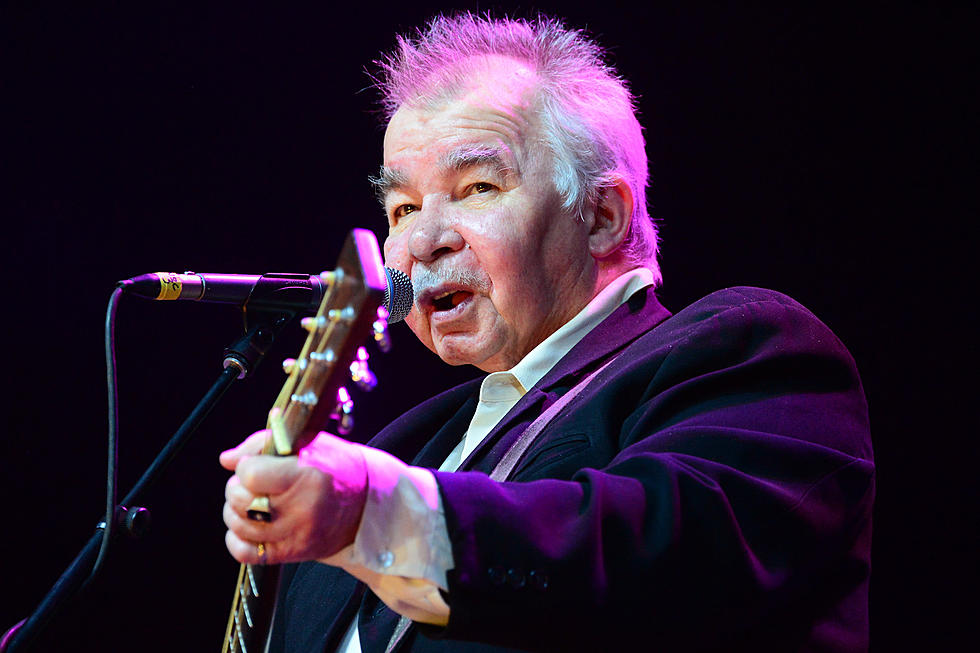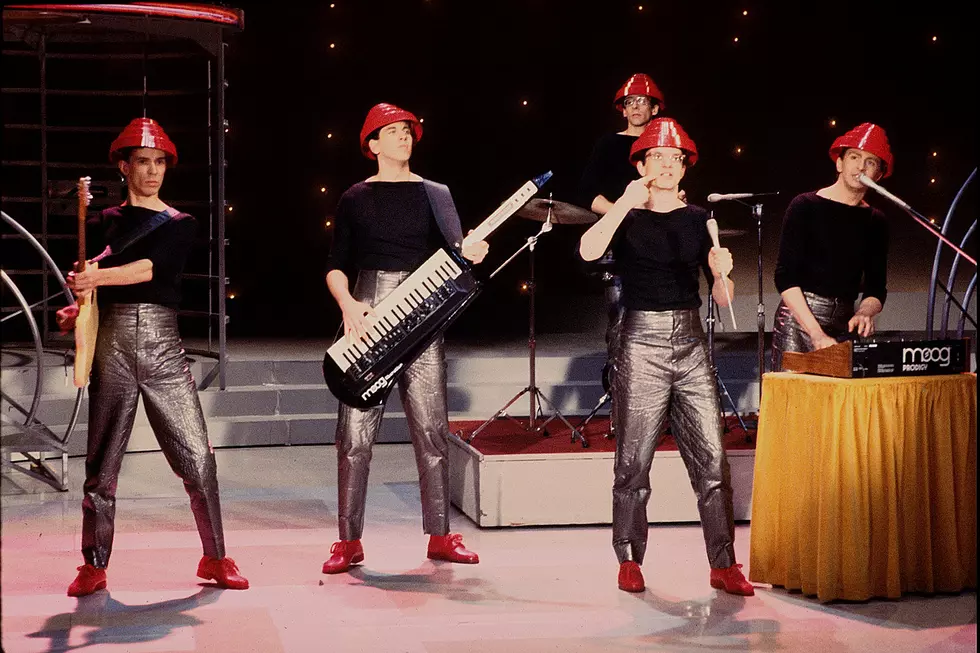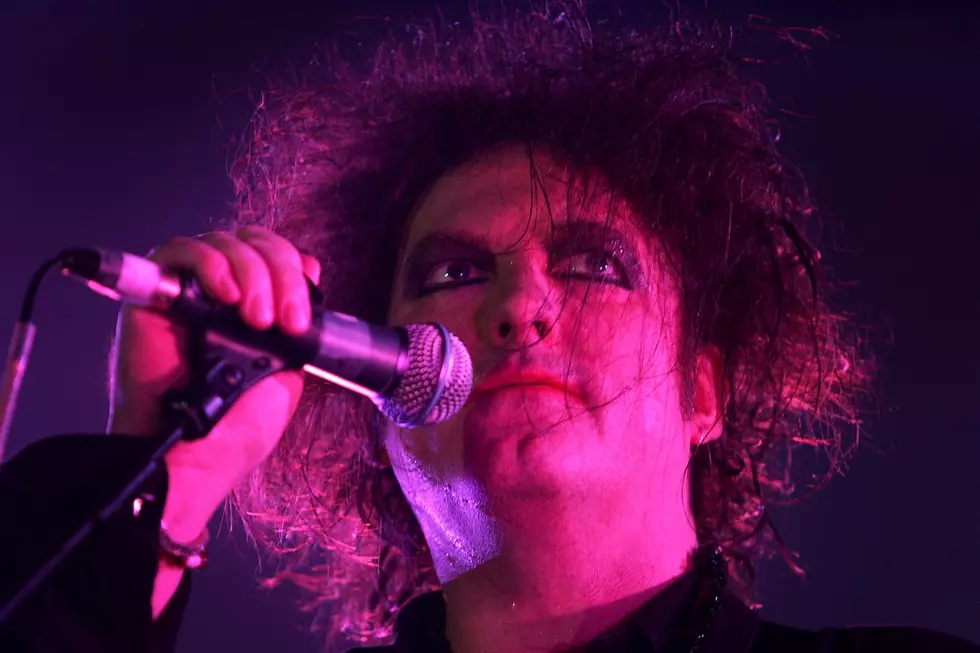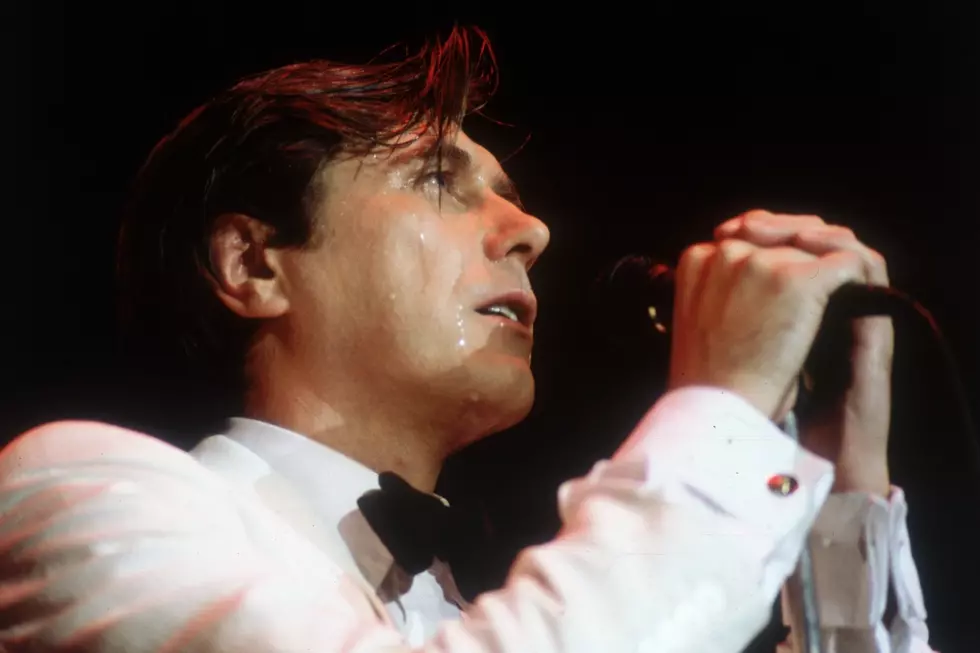
5 Reasons John Prine Should Be in the Rock and Roll Hall of Fame
John Prine's story is like something out of the movies: a singing mailman who became an underground sensation, a hit-music maker and then a huge influence on successive generations of singer-songwriters.
His career could very well take another unexpected, though wholly deserved, turn now that he's been nominated for the Rock & Roll Hall of Fame.
Not bad for guy who actually was just a postal worker humming a tune. "Once you know you're on the right street, there really wasn't that much to the job," Prine joked later. "I used to compare it to being in a library for eight hours with no books. There wasn't much to do but use your imagination."
But what an imagination it was. He eventually began attending open-mic nights, then composing his own songs. Kris Kristofferson discovered Prine's canny ability to combine sharply refined details – it's been described as "heavy realism" – with a delightfully surreal wit after songwriting buddy Steve Goodman brought him to an early folk revival-era gig at the Earl of Old Town saloon in Chicago.
Kristofferson got Prine an invite to perform at the Bitter End in New York City, and Atlantic Records signed him the very next day. He quickly garnered broad critical acclaim – Prine has been honored with the PEN New England's Song Lyrics of Literacy Excellence Award, a slew of Grammys and the Americana Music Awards artist of the year award, among many others – while battling through two rounds of cancer. Prine was the first singer-songwriter to perform at the Library of Congress.
Could another of music's biggest honors be next? Here are five reasons why John Prine should be in the Rock & Roll Hall of Fame.
Hall of Famer Bob Dylan Agrees
Prine has said that Bob Dylan's country rock-driven Nashville Skyline period helped convince him to pursue music. Before long, they'd developed a mutual admiration, as Dylan heaped particular praise on a pair of songs from Prine's 1971 self-titled debut.
"Prine's stuff is pure Proustian existentialism, Midwestern mind trips to the nth degree – and he writes beautiful songs," Dylan told the Huffington Post. "I remember when Kris Kristofferson first brought him on the scene. 'Sam Stone' featuring the wonderfully evocative line: 'There’s a hole in daddy's arm where all the money goes, and Jesus Christ died for nothing I suppose.' All that stuff about 'Sam Stone,' the soldier junkie daddy, and 'Donald and Lydia,' where people make love from 10 miles away. Nobody but Prine could write like that."
Dylan famously joined Prine onstage during a 1972 residency at the Bitter End, providing no small amount of validation to the young singer-songwriter's career. "It was like a dream," Prine told American Songwriter. "I was a big fan of Bob Dylan early on, and his song 'The Lonesome Death of Hattie Carroll.' I modeled 'Donald and Lydia' after that song – as far as telling a story and having the chorus be the moral to the story."
But Dylan Isn't the Only One
Roger Waters described Prine's music as "just extraordinarily eloquent," in a talk with Word magazine. "He lives on that plane with Neil Young and [John] Lennon." Roger Ebert, the late movie critic, once ducked in while the young Prine was playing the Earl of Old Town, and was moved to write a piece titled "Singing Mailman Who Delivers a Powerful Message in Few Words."
John Mellencamp paid tribute to Prine at the PEN awards, held in 2017 at Boston's John F. Kennedy Presidential Library. "John taught me a lot, whether he knew it or not," Mellencamp said that night. "He was a natural-born earth shaker. I know the record companies had no idea what to do with John Prine. 'He's not country, he's not rock – what are we gonna do?' And he said, 'To hell with it. I'm gonna do what I'm gonna do.' And he did." Mellencamp earlier covered Prine's "Jackie O" for 1983's Uh-huh, then co-wrote "Take a Look at My Heart" (which featured Bruce Springsteen on background vocals) for 1991's The Missing Years.
Johnny Cash gave Prine a shout-out in his autobiography, while Steve Cropper from Booker T. and the MGs produced 1973's Sweet Revenge. Prine collaborated with Sun Records founder Sam Phillips on two songs for 1979's Pink Cadillac, and worked with longtime Tom Petty collaborator Howie Epstein on 1991's The Missing Years and 1995's Lost Dogs and Mixed Blessings. Next-gen performers like My Morning Jacket, Old Crow Medicine Show, the Drive-By Truckers and Bon Iver's Justin Vernon have also covered his songs.
He Was Indie Way, Way Before That Was Cool
Prine's The Tree of Forgiveness made history when it debuted at No. 2 on the Billboard country charts in 2018: That was the best-ever finish for an album issued by Prine's independent Oh Boy label. But Prine is no bandwagon jumper when it comes to self-releasing things. He actually founded Oh Boy way back in 1981, when most artists were still chained to the corporate wheel. He'd broken into the business on Atlantic, then later signed to Asylum.
"People thought we were crazy for starting a record company," Prine told Billboard. "They really thought I was shooting myself in the foot. I just liked the idea of owning what you did, owning the masters and not having to deal with [major-label pressures]: 'Can you sell as many records as this group or this or that?' I just bought a little record company, and I had no idea we were on the right path."
Prine, who co-founded the imprint with longtime manager Al Bunett, started out shipping Oh Boy records through the U.S. mail, in a call-back to his pre-music roots. His first project on the indie was 1984's Aimless Love; the album produced "People Puttin' People Down," which was subsequently covered in concert by Bob Dylan. Decades later, Oh Boy remained very much a mom-and-pop operation. The label's managing partner is Prine's wife Fiona. His son Jody was brought in as director of operations.
He's as Generous as He Is Sharp Witted
Prine co-wrote "You Never Even Called Me By My Name," a darkly humorous send-up of country-song tropes, with Steve Goodman – only to see it achieve sweeping chart success when singer David Allan Coe covered the outlaw classic in 1975. But you won't find Prine's name on any of those singles.
Instead, he handed all of the credit – and the cash – to Goodman. "I thought it was a joke," Prine told Rolling Stone. "Next thing I know, David Allan Coe does it, and it goes to No. 1." (Actually No. 8, but that probably doesn't sound as intriguing to the born storyteller in Prine.)
Goodman later gave Prine a jukebox as a show of thanks. They went on to work together on Prine's Goodman-produced 1978 album Bruised Orange. Goodman also oversaw "People Puttin' People Down" from Aimless Roots, before succumbing to leukemia in 1984. A year later, Kris Kristofferson released a cover of "The 20th Century is Almost Over," a Goodman-Prine composition, as part of the debut album from the Highwaymen – a country supergroup that also included Johnny Cash, Waylon Jennings and Willie Nelson.
He Takes Up for the Little Guy – and the Little Planet
John Prine leveraged his platform to discuss bigger issues from the first, but always from a distinctly individualistic view point. That provides a powerful lens on songs like "Paradise," which outlines the watery death of his parents' Kentucky hometown when the Green River was dammed so boats could access the Peabody Coal Company mines. Nothing captures the loneliness of aging like "Hello in There." As an Army veteran, he brought cutting insights into their plight on songs like "Sam Stone" and 1979's "Saigon," among others.
Then there was "The Lonesome Friends of Science," which gave Prine an opportunity to decry the fate of the recently demoted planet of Pluto. This deep cut from The Tree of Forgiveness returned Prine to the same outer reaches as "Space Monkey," which followed primates that were sent into orbit in the '50s by the Soviet Union.
"I mean, they made us memorize the planets when I was in elementary school, and then they tell me one day, 'Sorry, this is not a planet,'" Prine complained to GQ. "And then to add insult to injury, they came back a year and a half later and call it a dwarf planet. Like they haven't ruined it enough. They said, 'Okay, you can be a planet, but you're a dwarf.' I mean, somebody's gotta stick up for Pluto."
Top 100 Classic Rock Artists
More From Diffuser.fm










